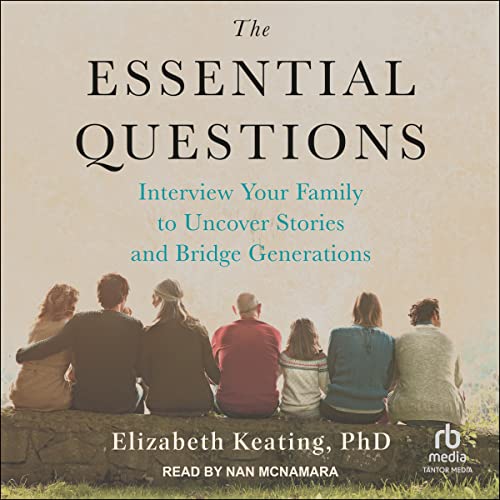
ELIZABETH KEATING, Professor of Anthropology & Graduate Faculty, Human Dimensions of Organizations, The University of Texas at Austin
Teaching through research is recognized as one of the strengths of anthropology. A few years ago, as I was researching culture change across generations, I brought my research into the classroom by asking students to do some research in their own families. I teach Culture and Communication at the University of Texas at Austin, in classes ranging from 25 to 200 students, with students coming from majors ranging from liberal arts to engineering. Specifically, I asked the students to interview one of their grandparents (and if a grandparent wasn’t available, another elder family member). The students used questions I developed and used in my research project.

Although my teaching mentors had long ago instilled in me the practice of having undergraduates do research, I was excited to use this particular research assignment in the classroom because I had been so moved when I interviewed older people about their early lives for my own research. I wanted my students to have these phenomenal conversations, too. The students were astonished at what they found out from their grandparents. As one said:
Thank you for this assignment, I have not said that very often over the course of my college career. It has been more meaningful than I could have imagined when I started. I am lucky enough to have four living grandparents, and this inspired me to record some of their thoughts and lives so my family can have them long after they are gone.
As I had discovered in doing research on families, not many people know very much about their grandparents’ early lives, or what life was like “back then.” This is not salvage anthropology, where the premise is that cultures are disappearing, but rather a chance to see the dynamic aspects of culture; grandparents have lived through many transformative decades. The students experienced how powerful anthropology can be at destroying stereotypes, expanding ideas, capturing knowledge unrecognized in official accounts, increasing empathy and building bridges. The interview assignment encouraged them to see anthropology in conversation with their own families.
The success of the students’ interviews with grandparents and other family elders rested on approaching the interview from the perspective of an anthropologist. That is, not only were the questions based on the subject matter an anthropologist would be interested in knowing when trying to understand another way of life, such as kinship practices, identities, material culture, beliefs, space, time, dress & the body. What was also important was learning to take the point of view of the other, and to listen without moral or aesthetic judgements.
One of the most powerful questions they asked is a question about space: “What was the home you grew up in like?” As an anthropologist, I’ve always been interested in the social uses of space, a topic that illustrates the complexity of human groups (Low, 2003). Homes are not only visually distinct, but home is a key site for socialization and certain affordances for individual and collective action.
The students each wrote a research report and gave a brief presentation to the class about their findings. Because the class was diverse, this meant we heard accounts of growing up in cultures as varied as Nepalese and Jamaican, and because of population mobility common today, it became clear, for example, how their grandparents’ personal identities were shaped, not by choice, but in interaction with others, as quite different identities became relevant to relationships in a new community.
One compelling reason for bringing this type of research into the classroom is that according to psychologists, family histories can link with our ongoing psychological ‘project of the self’ and might have a therapeutic benefit for our wellbeing (Nicholson, 2018). I found the students’ accounts so moving that I included some of them in the book I wrote based on my research, and about the importance of taking an anthropological approach to family history (author, 2022), which includes short chapters on the anthropological background behind topics such as space, time, interactions, belief and kinship, and a chapter on interviewing.
References
Keating, E. (2022). The Essential Questions: Interview Your Family to Uncover Stories and Bridge Generations. New York: Penguin Random House.
Low, S. M. (2003). Embodied space (s) anthropological theories of body, space, and culture. Space and culture, 6(1), 9-18.
Nicolson, P. (2018) Family trees, selfies and our search for identity. Psychologist 31, 28-32

Leave a Reply
You must be logged in to post a comment.